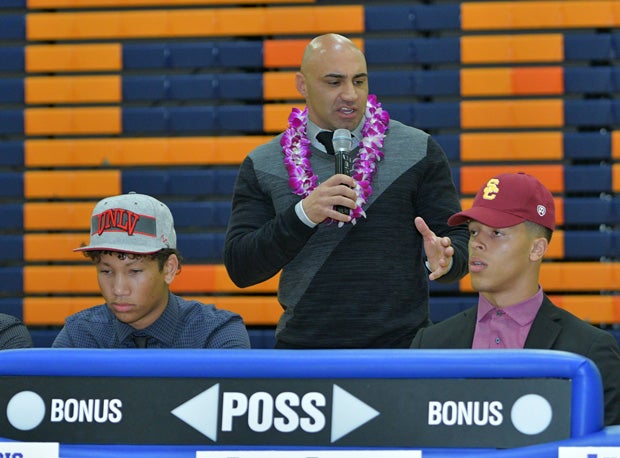Getting tasks done isn't the only role of successful coaching staff. The human element plays a role as well.
Video: Message on the power of social media
See MaxPreps' own Chris Stonebraker give his insights into social media at a football camp.In a fascinating book called "Supervision and Instructional Leadership" by Carl D. Glickman, he explains something about group meetings at schools that is relevant to football practice. Let's face it, all coaches have dreaded staff meetings at schools for one reason or another. Many times it's because nothing will apply to the coach. Therefore, those meetings are just a waste of time.
When thinking about football "group meetings," or what we call practice, how many of our practices are a complete waste of time to the kids coming? If the practice doesn't apply to them, what is that going to do to the direction of the team over the course of a season?
Coaches have many different goals for the season, for each game week, and for each practice. Sometimes the goal is to install a new kick return, or maybe it is a new blitz. Then there are different goals for the kids. For one, it might be to earn a college scholarship, while for another the coach would love to see him start a few games

Developing personal relationships with players gives them confidence to be better.
Photo by Jann Hendry
So, there is a delicate balance that coaches must evaluate: the goals of the group and the goals of the individual. Glickman calls this "the two dimensions of an effective professional group." This idea does not apply only to a professional group, it applies to high school football teams as well, and specifically to practices. You can simply exchange the word practice for the word group.
The leader must split the meeting (practice) in to two separate "dimensions." He calls these the "task dimension" and the "person dimension." The task dimension represents the content and purpose of the group meeting (practice). There is a task or tasks to accomplish and the group sets out to accomplish that task or tasks. For instance, installing three new plays for the week's game might be today's practice task.
The person dimension involves the "interpersonal process and the satisfaction participants derive from working with each other." Every single player has needs: Social needs, physical needs, emotional needs. They are all playing football for a different reason. As a coach, it is key to understand the individual needs of players.
This is where we see big differences in programs. When kids feel and know that their head coach, or their unit coach, or position coach, actually cares for them as a person and not just a teammate, we find successful programs. Glickman says that in the professional meeting world, when there is concern for each individual, then it leads to a positive group climate. And when there is a positive group climate, the individuals will want to meet as a group again and again.
The teams with great team chemistry that I have worked with, the kids wanted to be there. They wanted that group to meet often. Why? Because they felt valued. They felt as if their individual contributions, the people dimension, were worthy to be added to the team. They had something to offer, and they wanted to offer it. They felt valued as a person. Glickman would say that we achieved great "person dimension" that led to great "task dimension" as a group.
The very same thing applies to coaching staffs. Glickman would analyze the group and probably find that "task dimension" became more important than "people dimension." Therefore, the people didn't like the meetings, and didn't want to be there.
The takeaway: remember to value your players as people too. If you're a head coach, remember that your staff is made up of people. If the players want to be there, and the coaches want to be there, then the task dimension is going to come together so well. The work will be done with satisfaction and effort like you've never seen!
Chris Fore is a veteran Head Football Coach and Athletic Director from Southern California. He consults coaches and programs nationwide through his business Eight Laces Consulting.